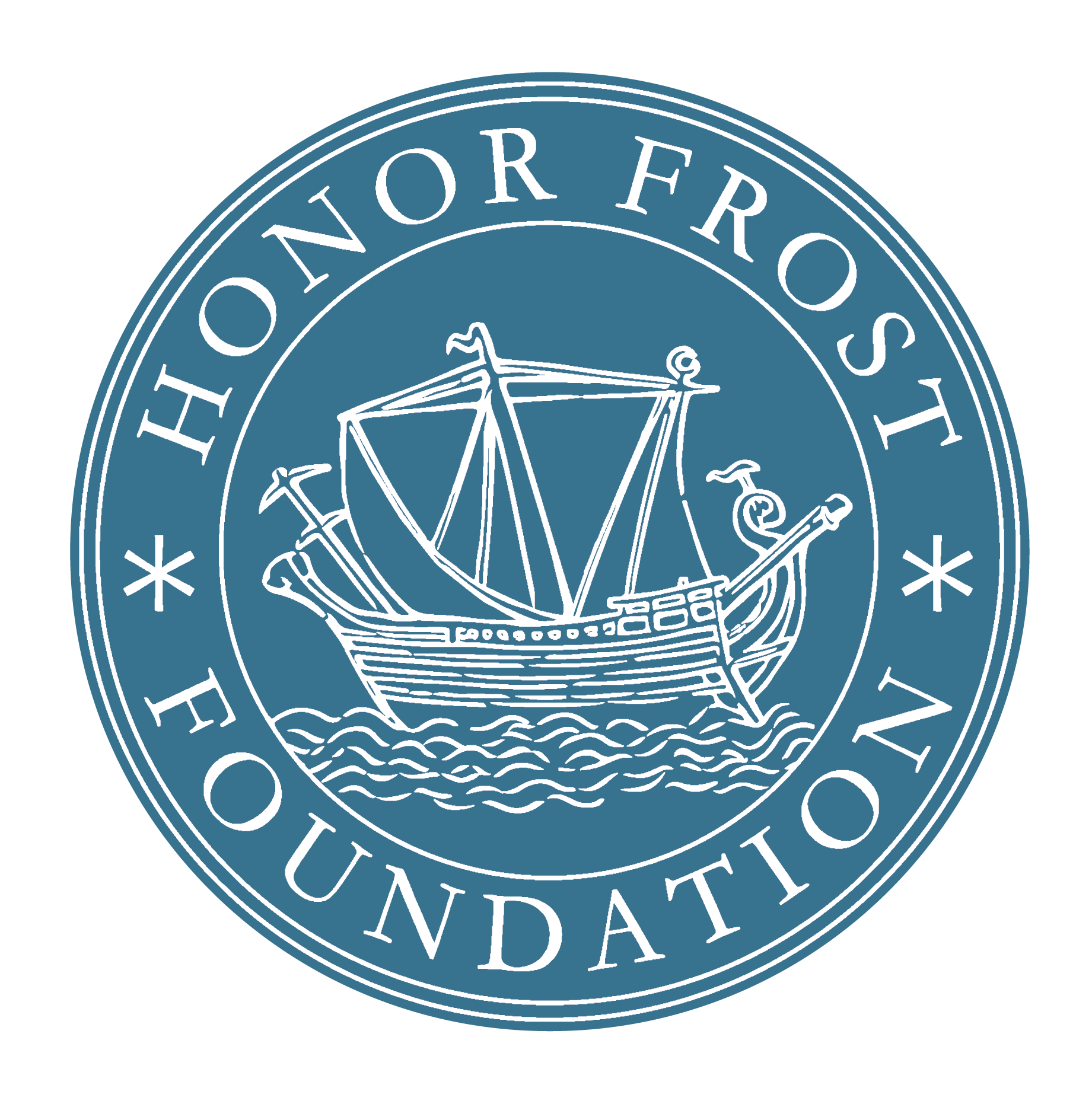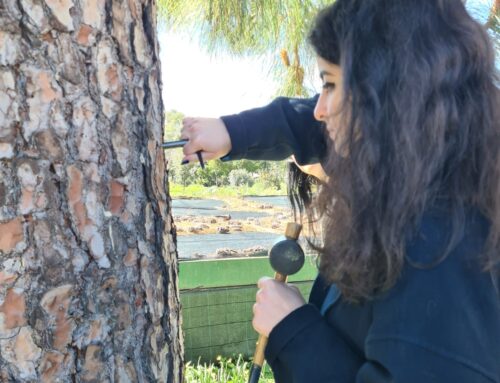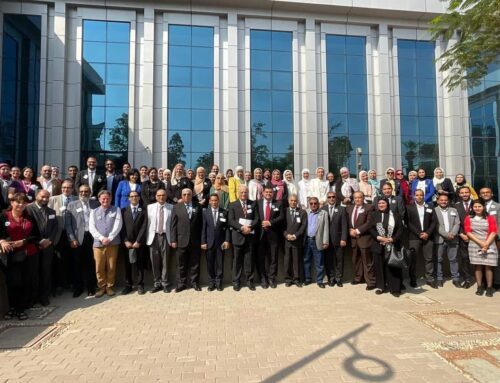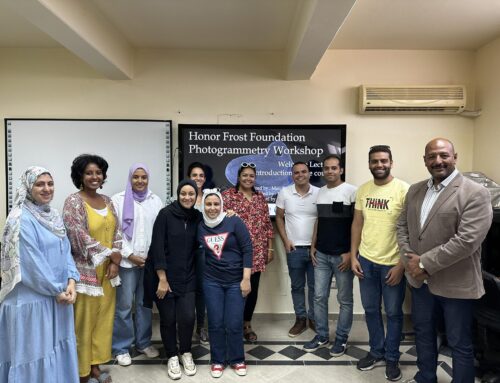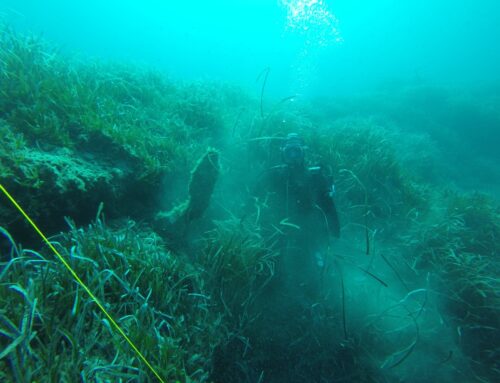MAGS 2020
The third Maritime Archaeology Graduate Symposium was held at Worcester College, University of Oxford from the 22nd – 23rd February 2020 and organised by our Oxford University Scholars, Nesrine A. El-Galy and Achilles Iasonos. The Foundation awarded three bursaries for participants from the eastern Mediterranean to attend and present at the conference. Below is a report from the MAGS committee and a summary of the reports from the three bursary recipients.
A series of short reports have also been published and can be found here
MAGS 2020 Committee Summary Report
MAGS 2020 Summary of Bursary Reports
MAGS 2020 Committee Summary Report

The presentations were divided into four broad thematic units: Underwater Cultural Heritage (UCH); Ships & Shipwrecks; Boat Models & Anchors; Harbours & Maritime Activities. Each addressed the sub-discipline and its various branches from a holistic, interdisciplinary perspective. The geographical scope of the conference was focused primarily on the eastern Mediterranean, alongside a smaller number from further afield to add important wider perspective and views of how maritime research is being conducted elsewhere. The presenters addressed key topics related to legislation, remote sensing, conservation, management, public outreach, maritime archaeology theory, ship technology, naval architecture, harbour studies, anchor studies and archaeometry. The emerging concepts and ideas from each presentation where further discussed and expanded in five roundtable discussions. This was with the input of two directors of maritime archaeology research centres, Damian Robinson and Emad Khalil, two directors working for the Foundation, Lucy Blue and Lucy Semaan and one member of the HFF steering committee, Antony Firth. Additionally, we were also honoured by the participation of one of the pioneers of maritime studies, David Blackman, who chaired a session and contributed to a roundtable discussion.
Our keynote speaker Antony Firth spoke about the United Nations Decade of Ocean Science for Sustainable Development and how cultural heritage can benefit from the funding available to help deliver the objectives of the Decade. On the second day of the conference, our mentors Emad Khalil and Lucy Semaan shared insights about the role of the Foundation in Egypt and Lebanon respectively, informing presenters and attendees about research directions relevant to the Foundation’s agenda. Over these two days, young researchers were given the opportunity to receive guidelines, discuss and brainstorm ideas with our mentors, which will hopefully inspire them to the small grants and scholarships schemes provided by the Foundation and begin to deliver new and innovative research in the eastern Mediterranean. The organising committee felt that our keynote speaker, as well as our mentors and roundtable discussions, provided a highly interactive and thought-provoking outcome of academic insights, funding and networking opportunities.
BAR Publishing and the Nautical Archaeology Society (NAS) had display stands and kindly shared advice and insights with attendees and presenters. Peta Knott from the NAS also gave a presentation about ‘What the NAS can do for you!’ highlighting its role in providing fieldwork opportunities for younger scholars to take active steps into actively participating in maritime research and in publishing its outcomes.
The MAGS2020 committee would like to say a huge thank you to everyone who attended and presented at the symposium and made MAGS2020 a unique academic experience. Thank you!
MAGS 2020 Summary of Bursary Reports

Mehmetcan Soyluoglu
Mehmetcan presented his paper ‘An effort for underwater cultural heritage protection in Cyprus and its contribution in Roman archaeology’. This focussed on the results of his 2018 coastal and underwater survey at Akanthou, highlighting the potential of coastal and underwater archaeology. Mehmetcan also discussed the various threats to the cultural heritage and presented a plan for protection and sustainable management.
As a result of the bursary Mehmetcan was able to present his work and to discuss this with other scholars and researchers in the field, ‘exchanging different methods and ideas from the different areas and researchers gave me a different perspective to my current and future research projects’. He was also able to ‘meet other researchers and create a network with them for future projects and collaborations in maritime archaeology’.
Sirine Saad ElDine Ghiye
Sirine presented her paper ‘’The use of Remote sensing for identifying coastal sites in Lebanon’. The presentation examined how coastal and shallow underwater archaeological sites can be detected through remote sensing techniques. The aim of the presentation was to show the changes over the years by the use of differents type of maps and images than apply the georeferencing process using QGIS software.
As a result of the bursary, attendance at MAGS ‘gave me self-confidence and more courage to complete my educational career in this field. It opened new horizons for me and an opportunity to get to know students and experts in this field to gain experience from them.
Georgia Dimitri Kyriakou
Georgia presented her paper ‘The evolution of the mast-step and keelson, based on shipwrecks found in the Mediterranean: from 7th century BC to 7th century AD’. The presentation was based on her on-going MA thesis on the construction of ancient shipwrecks dating from the 7th century BC to 7th century AD, with specific emphasis placed on the development of the mast-step.
Georgia stated that ‘since my thesis is currently in progress, the fact that I received comments and questions it proved to be very helpful. The unexpected fact is that, after the conference, I approach my topic somewhat differently, considering the discussions with the professors and colleagues. New ideas have been born, inspiring my work. I hope that this conference will continue to take place next years, inspiring more and more the new researchers.’
